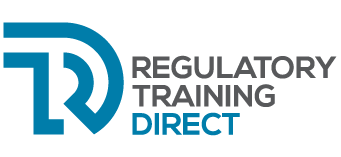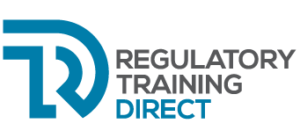current affairs
Issue 244, February 2024

Regulatory affairs news
Complementary Medicines and Medical Devices:
Revised Poisons Standard – February 2024 is available here and this explanatory statement summarises recent changes. The TGA has a web page summarising implementation dates of recent changes, view it here.
GMP Inspections of overseas countries: the launch of a pilot inspection programme in conjunction with Health Canada, and the UK MHRA, whereby each authority has agreed to extend the scope of an inspection to cover products of interest to one another, where possible, reducing the need for multiple inspections of the same site. Source: TGA
Outcome of consultation on the draft guidance for ‘Boundary and combination products – medicines, medical devices, and biologicals’ – in response to feedback provided the TGA has updated the guidance document which you can access here
Compliance action
Akula Foods has been issued two infringement notices totalling $37,560 for alleged import of unregistered complementary medicines. The Himalaya branded Ayurvedic medicines included Neem (Azadirachta indica) tablets which is a scheduled poison considered dangerous to human health. Source: TGA
TGA has issued four infringement notices totalling $75,120 to Liquefy Health for alleged importation and advertising of 2 unapproved complementary medicines. While these products are marketed as ‘shot’ wellness drinks. Source: TGA
13 infringement notices issued to a NSW individual for unlawful advertisement and supply of erectile dysfunction medicines. 55,000 products containing ingredients that can only be obtained by prescription were seized. Source: TGA
The Australian Border Fore, supported by the GTGA, seized more than five and a half million cigarette sticks and prevented hundreds of thousands of prohibited vapes and drug paraphernalia from reaching the streets of Sydney, as government agencies continue their hard-line crackdown on the illicit tobacco and illegal vape trade. Estimated street value of goods seized was $12.5 million. Source:TGA
Safety alerts
TGA has issued an advisory statement for medicines containing Withania somnifera (Ashwagandha) due to potential for gastrointestinal symptoms and very rare cases of liver injury. Source: TGA
(Industry response: Complementary Medicines Australia has issued a press release in response to the TGA’s statement, available here)
TGA has tested Artri King Tablets and found they contain undeclared diclofenac, dexamethasone and phenolphthalein which can cause serious side effects. Source: TGA
Medical devices: proposed applications audit framework – outcome of consultation. Source: TGA
Medical devices: An update to the checklist to help medical device manufacturers prove compliance with the Essential Principles. Source: TGA
“The Bad Supplements LIst: Failed and Prohibited Products and Brands”. US dietary supplements – a privately-published list which collates a number of test results for various ingredients in diferent brands, indicating which brands consistently fail to pass. Published by NaturPro Scientific.
Botanical Adulterants Prevention Programme and other adulteration stories:
Adulteration of Maca (Lepidium meyenii). Discusses known adulterants along with accidental adulterants, and analytical methods to detect adulteration. Source: BAPP
Adulteration of grape seed (Vitis vinefera) extract. Discusses a number of known adulterants (including peanut skin!) and analytical methods to detect adulteration. BAPP
Lavender – Authentication of Lavandula angustifolia Mill. (Lamiaceae) essential oil using physical property, gas chromatography, enantiomeric selectivity, and stable isotope analyses published in Journal of Essential Oil Research
BAPP Best Practices SOP for the Disposal / Destruction of Irreparably Defective Articles. If you receive a herbal material that is adulterated, don’t send it back to the supplier! BAPP
BAPP regularly publishes updates on LinkedIn .
Lead and Chromium Poisoning Outbreak Linked to Cinnamon Applesauce Pouches. FDA product testing found high levels of chromium and lead in cinnamon samples. 468 cases of poisoning were reported across the USA. Published by Centres for Disease Control and Prevention.
In the press:
What are nicotine pouches? Are they safe to use, and why has the government banned them? Article summary – In short: Some Queensland tobacconists are selling nicotine pouches in colourful packaging, marketed as an alternative to smoking and vaping. It is unlawful for nicotine pouches to be commercially sold or advertised because they have not been approved by the TGA. What’s next? Health authorities say they will continue to monitor the situation closely. Published on ABC news
A blister pack recycling programme has been launched in the Northern Territory. Published in Packaging News.
Foods:
Recalls
Gluten Freedom products – Broken Black Rice & Polenta Sourdough, Everything Sourdough Bagels, Splendid Sourdough English Muffins (280g) – due to presence of foreign matter (plastic) Source: NSW Food Authority
Yummy Snack Foods Pearl Barley – due to mislabelling of an undeclared allergen (Gluten). Source: NSW Food Authority
Peters Ice Cream Connoisseur Plant Based Hazelnut Chocolate – due to presence of an undeclared allergen (Milk). Source: NSW Food Authority
Voyager Estate 2023 Tempranillo Rosé – due to the presence of foreign matter (glass). Source: NSW Food Authority
Chef Q-Pork Slices – due to the presence of an undeclared allergen (milk) Source: FSANZ
Call for submissions
Application A1261 – Irradiation – Increase in maximum energy level: The application is to increase the maximum energy level for machines generating X-rays used to irradiate food, from 5 megaelectronvolts (MeV) to 7.5 MeV, provided the X-ray target of the machine source is made of tantalum or gold FSANZ Circular 280-24
Amendments to Food Standards Code
A1270 – Food derived from herbicide-tolerant and insect-protected corn line DP51291 Source: FSANZ
M1021 Maximum Residue Limits for residues of specific agricultural and veterinary (agvet) chemicals that may occur in food commodities. FSANZ
Approvals from previous applications (refer to FSANZ circular)
A1274 – Food derived from disease-resistant banana line QCAV-4
A1278 – Beta-Fructofuranosidase from GM Trichoderma reesei as a processing aid
A1271 – Cellulase from GM Aspergillus niger as a processing aid
A1272 – Food derived from herbicide-tolerant and insect-protected corn line DP915635
New applications
An application to permit a new genetically modified source organism for the production of a human identical milk oligosaccharide to be used in infant formula products. Source: FSANZ
Application A1289 – Food derived from disease-resistant, low-reducing sugars and reduced browning potato line BG25: To seek approval for the sale and use of food derived from potato line BG25, genetically modified to have disease-resistance, low-reducing sugars and reduced browning. Source: FSANZ
Application A1290 – Citicoline as a nutritive substance for use in formulated caffeinated beverages: To permit the addition of citicoline as a nutritive substance for addition to formulated caffeinated beverages. Source: FSANZ
This application seeks to amend the Australia New Zealand Food Standards Code to permit a new genetically modified source organism Corynebacterium glutamicum for the production of 2′-Fucosyllactose (2′-FL) for use in infant formula products. Source: FSANZ
More food news supplied by Gary at Correct Food Systems
Plain English Allergen Labelling. A guide to the new regulations published by Correct Food Systems and available here.
A UK inquest into a fatal anaphylactic reaction to peanuts in a takeaway pizza that was ordered online has highlighted areas for improvement. In July 2020, a 23-year-old with a known peanut allergy, died after consuming a chicken tikka masala pizza ordered from a local restaurant via a third-party food ordering platform. The inquest revealed that the consumer did not note his allergy in the order. During the inquest, the restaurant’s chef testified that he would have refused the order had he been aware of the customer’s food allergy. Post-incident inspection disclosed the use of peanut powder in the pizza, however in the restaurant’s food safety documents the allergen sections were found to be blank.
In her conclusion, the coroner said she would write to authorities in support of a law change that would make it mandatory for restaurants to publish food ingredients on the face of their main menu. See Medriva.com and the BBC.
News from USA provided by Michael D. Levin, Health Business Strategies.
Americans expect to see Jim Jones, Deputy Commissioner of the new Human Foods Program, to increase emphasis on and enforcement of chemical contaminants in the food supply. Why? He was appointed from the Environmental Protection Agency (EPA) where he, among other things, led the overhaul of the Toxic Substance Control Act in 2016.
Cosmetics:
Chemicals added to the Inventory 5 years after issue of assessment as at 27th February: CAS 70775-75-6 and CAS 646-15-9 More details here
Chemicals added to the inventory following issue of assessment certificate as at 13th February: six chemicals listed here along with limits on supply.
Variation to Inventory listing after evaluation: CAS No. 2370-63-0 and 6976-93-8. Reasons provided here.
Cosmetics compliance
In the last two issues we mentioned the controversy of misleading claims made by Biologi and its director Ross Macdougald. This has now been the subject of a TV segment on A Current Affair. which you can view here. Allegations include that Macdougald claimed that his products contained 99.8% vitamin C rich fruit extract and 0.2% preservative, whereas university testing found they contain 70 – 80% glycerin, 20% water and no Vitamin C.
New Zealand news from Rita at pH Factor
The Environmental Protection Authority (EPA) of New Zealand has announced it will ban PFAS in cosmetics. The ban will mean that from 31st December 2026, the import or manufacturing of cosmetics containing PFAS will be prohibited in New Zealand. From 31st December 2027, selling or supplying cosmetics containing PFAS within the country will be banned, and by 30th June 2028, all PFAS-containing cosmetic products will need to have been disposed of. Decision overview here and updated rules here.
USA: More on PFAS from Michael D. Levin Health Business Strategies
Addition of PFAS with final toxicity values
The 2020 NDAA includes a provision that automatically adds PFAS to the TRI list upon the Agency’s finalization of a toxicity value. Six PFAS were automatically added for Reporting Year 2024 due to EPA having finalized a toxicity value during 2023. Only these particular salt forms of the acids are added to the list.
• Ammonium perfluorohexanoate; Chemical Abstract Service Registration Number (CASRN) 21615-47-4
• Lithium bis[(trifluoromethyl)sulfonyl] azanide; CASRN 90076-65-6
• Perfluorohexanoic acid (PFHxA); CASRN 307-24-4
• Perfluoropropanoic acid (PFPrA); CASRN 422-64-0
• Sodium perfluorohexanoate; CASRN 2923-26-4
• 1,1,1-Trifluoro-N-[(trifluoromethyl)sulfonyl] methanesulfonamide; CASRN 82113-65-3
Addition of PFAS no longer claimed as confidential business information
News releases fom EPA here and here
In the press:
Anti-ageing skincare products claim to slow the effects of ageing. So do they work? Interesting article published by the Australian Broadcasting Authority
Training news
5.01. USA Dietary Supplements (e-learning). Written and presented by US Dietary Supplement law specialist and lecturer, Rend Al-Mondhiry Partner at Amin Talati Wasserman, LLP. Rend is a resident expert and a lecturer at Georgetown University Law Center RISE on the topic of dietary supplement regulation. Agenda includes ingredient requirements, labelling, quality and safety.
Read more and book this course here: https://www.regulatorytrainingdirect.com/#toggle-id-26
A recent LinkedIn post from Rend Al-Mondhiry summarises recent FDA regulatory changes affecting US dietary supplements, read her summary on LinkedIn and FDA update is here. Visitors to SupplySide East can see her presentation and catch up with her at the Amin Talati Wasserman booth
2.10 Advertising and Social Media in Australia and New Zealand – this course is continuously updated with recent developments in the controversial area of “greenwashing”, social media “influencers”, and undisclosed testimonials. We cover specific requirements for advertising foods, cosmetics, complementary medicines and dietary supplements in both Australia and New Zealand https://www.regulatorytrainingdirect.com/#toggle-id-19
All our courses can be viewed here https://www.regulatorytrainingdirect.com/#course-summary
More from this month’s sponsor Baker Dillon Group:
If you are readying your product line for entry into the U.S., creating a compelling brand marketing strategy is essential to attract and engage North American customers. Marketing efforts that resonate with U.S. consumers’ preferences and values are key to driving brand awareness and most importantly sales. Baker Dillon Group specialising in nutraceutical and food and beverage industry brand marketing, has developed numerous successful promotion programs for global company brands entering the U.S. marketplace.
Baker Dillon Group, through our experienced Total Involvement Marketing™ team, will create a successful business foundation approach which includes branding development, public relations, advertising, and promotion. Within those categories, we provide print advertising, graphic design, collateral materials, product packaging, publicity, social media, digital marketing, media training, and trade show promotion, as well as other marketing communications initiatives.
The value of partnering with Baker Dillon Group is that we will work closely with you to determine objectives, positioning, important messages, and expectations. These factors will be addressed at the beginning of the creative phase for each deliverable so that we can move forward together with clarity, trust, and confidence, while effectively developing your project on time and within budget. Contact Baker Dillon Group at info@bakerdillon.com or from the website at BakerDillon.com.
Published by Regulatory Training Direct www.regulatorytrainingdirect.com
Providing regulatory training courses for complementary medicines, GMP, foods, cosmetics dietary supplements.
Contact us to become a sponsor of one of our newsletters.
This newsletter is sent at no charge. You are welcome to forward this to any colleagues who may find it useful. To receive this newsletter regularly click this link



